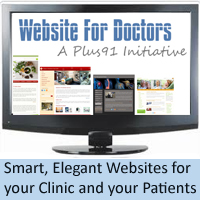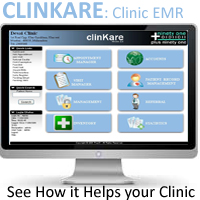In India the healthcare delivery at the village level is constrained by lack of healthcare infrastructure, lack of doctors, lack of supply-chain and lack of appropriate monitoring of the existing healthcare infrastructure.
Most of the poor people living in remote areas are not able to access formal health care and many of them consult untrained local ‘private practitioners’ incase of any illness. Nearly one million Indians die every year due to inadequate healthcare facilities and 700 million people have no access to specialist care. About 75% of health care infrastructure, medical manpower and other health resources are concentrated in the cities or towns where only 27% of the population resides. There is a dual burden of disease with the rise in communicable and non-communicable diseases. There is shortage of human resources, poorly trained providers, poor quality of care, lack of drugs, equipment and ineffective referral systems. These are responsible for the lack of progress in reducing maternal mortality and in providing basic reproductive and maternal health services and act as a barrier for achieving millennium development goals. Recognizing this need to strengthen the Indian healthcare delivery system led to the conceptualization of the cloud enabled healthcare infrastructure – The Micro Health Centre.
This innovative and visionary affordable health care infrastructure can be rapidly rolled out to provide basic healthcare along with Tele-video medical consultation technology. It consists of a standard shipping container converted to a Micro Health Centre, that is connected to specialized medical personnel through Internet, to bring much needed preliminary healthcare to those in need. The first deployment will be in rural Haryana.
The objective is to equip the Micro Health Centre with basic diagnostic equipments that can be operated by paramedics or interns, along with specialist medical personnel providing expert interventions through remote medical consultation. It has a network connectivity varying from 256 KBPA (via satellite) to 2 MBPS (via leased line). Furthermore it can be easily transported to remote rural areas as all supply-chains such as trucks, trains, roadways etc are aligned to handling shipping containers. The Micro Health Centre has been designed to provide healthcare, health education as well as medicines, thereby providing the basic health facilities to inaccessible areas.
Micro Health Centre structure
The solution helps in mitigating the following issues:
| Identified Healthcare Issue | Conceptualized solution |
| • Lack of Doctors and specialists | • Remote tele-health consultation |
| • Absenteeism of assigned doctors | • Cloud enabled biometric monitoring |
| • Lack of Healthcare Infrastructure, no electricity | • Rapidly deployable health infrastructure |
| • Non Functioning medical equipment | • Equipments integrated with Health Cloud |
| • Inability to rapidly deploy and then maintain the
healthcare infrastructure |
• Self sustainable infrastructure |
| • Trained manpower to run the medical equipment | • Interns/ para medical personnel can operate with
training in Tele-health services |
| • No proper medical records | • Centralized medical records |
Easily deployable in remote areas
Key features:
- Self contained medical solution that can be rapidly deployed and is usable from day one. Requires minimum skilled resources at site and only requires diesel to make it functional.
- Satellite connectivity and built in electricity
- Tele health services to provide basic healthcare and specialist medical care
- Innovative and affordable health care infrastructure
- Rapid roll out
- Easy transportation to remote rural areas as all supply-chains such as trucks, trains, roadways etc are aligned to handling shipping containers.
Micro Health centre Functionalities
Benefits:
• Increasing the reach of healthcare
• Affordable healthcare solution
• Providing high quality care.
• Provides primary healthcare
• Remote medical consultation services
Cloud Enabled Micro Health Centre
The Micro Health Centre is able to leverage the revolutionary effect of cloud computing for Tele-health services, addressing the shortage of healthcare personnel in remote areas. The above diagram demonstrates the cloud computing functionality at µHC. The healthcare delivery at the Micro Health Centre can be monitored through the health cloud connectivity, thereby providing highly efficient and quality healthcare
The µHC- Health cloud advantage:
1. Cloud computing for Tele-health is advantageous for remote consultations via video-conferencing; it can save the time and money spent by the patient.
2. Real-time devices like tele-ECG at the µHC can transmit data to remote locations for instant analysis. Data is stored and forwarded to several sites at once or accumulated for further analysis at a later time.
3. Patient registration, appointment scheduling and monitoring can all be performed
4. Healthcare management and patient education are effectively handled by the µHC Health cloud, giving more complete care to the patient.
5. Medical equipment integration with the health cloud such as with stethoscope, glucometer and equipments to monitor vitals to aid in remote consultations.
Thus it dramatically increases the reach of healthcare, bridging the Indian healthcare need gap.
REFERENCES:
1. John TJ. et al, 2011. Continuing challenge of infectious diseases in India. Lancet 15;377(9761):252-69.
2. Patel V, 2011. Chronic diseases and injuries in India. Lancet. 2011 Jan 29;377(9763):413-28.
3.Haines, A. et al, 2004. Can the millennium development goals be attained? BMJ. 2004; 329(7462): 394–397.
4.Travis, P. et al, 2004. Overcoming health-systems constraints to achieve the Millennium Development Goals. Lancet 2004; 364: 900–06.
5.Bhandari L. et al, 2007. Health Infrastructure in Rural India, India infrastructure report – 2007, 3inetwork, oxford publication, India. (Available at: 3inetwork.org/reports/IIR2007/11-Health.pdf)
6. Healthcare in India, Emerging market report 2007, Price Waterhouse Coopers. (Available at: http://www.pwc.com/en_GX/gx/healthcare/pdf/emerging-market-report-hc-in-india.pdf).
7. Krishnan A, 2010. Evaluation of computerized health management information system for primary health care in rural India. BMC Health Services Research 2010, 10:310
8. Siriginidi SR, 2009. Achieving millennium development goals: Role of ICTS innovations in India. Telematics and Informatics, 26(2):127-143.
9.Wang X. et al, 2010. Application of cloud computing in the health information system. In: Proceedings of the2010 International Conference on Computer Application and System Modeling (ICCASM). New York, NY: IEEE; 2010
- Technology firms and health care: heads in the cloud: digitising America’s health records could be a huge business. Will it? The Economist (US) 2011; 399(8727):63.
- Wootton R, 1997. The possible use of telemedicine in developing countries. J Telemed Telecare; 3(1):23-6.
About the Author:
Dr. Jaijit Bhattacharya
Adjunct Professor, Department of Management Studies
IIT – Delhi
Director, South Asia, Global Government Affairs,
HP India Sales Pvt. Ltd
email: jbhattacharya@iitd.ac.in
Bio: Dr. Bhattacharya is Adjunct Professor at IIT Delhi, and Vice President of Institute of Open Technology and Applications (IOTA), Government of West Bengal. Dr. Bhattacharya advises governments on e-governance strategies. Dr. Bhattacharya has developed business models and strategies for leading companies in the IT, media and computer hardware industries. He is the author/co-author of four books on e-Governance including the first book on e-Governance in India, ‘Government On-line – Opportunities and Challenges’.
Co- Author:
Ms. Ritu Ghosh
Research Associate
IIT – DELHI
Specialist – Education Health Environment, Global Government Affairs,
HP India Sales Pvt. Ltd
Email ID: ritug054@gmail.com
Bio: Ms. Ritu Ghosh is a research associate with Indian Institute of Technology, Delhi and has set up the Centre for Excellence in e-Governance at IIT Delhi campus with an objective to carry research activities and showcase the latest technology initiatives and innovation to the government. She is an ICT public policy expert with over 13 years of experience. She has been driving initiatives for the adoption of ICT as the transformation tool in emerging and developed economies.
Co- Author:
Dr. Anjali Nanda, B.D.S
Social Systems Specialist,
Hewlett Packard – India, Gurgaon
E-mail: anjalinanda0503@gmail.com
Bio: Dr. Anjali Nanda is a dental surgeon with rich clinical experience in both rural settings and urban areas in India. She has been a part of research projects involving urban poor and has a good understanding of their healthcare needs and the healthcare delivery process.








